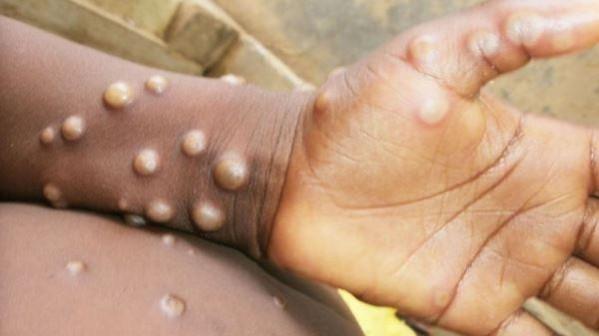
The Mpox virus, a zoonotic disease primarily found in the tropical rainforest areas of central and west Africa, has been causing concern among health experts worldwide. The World Health Organization (WHO) has declared the current outbreak, which has seen over 14,000 cases and 524 deaths, a global health emergency. The Mpox virus is known to cause fevers, headaches, muscle aches, and painful boils on the skin. It is primarily transmitted through close, skin-to-skin contact.
However, recent discussions among infectious disease experts have raised the question of whether the Mpox virus can spread through the air, similar to Covid-19 or the flu. According to the US Centers for Disease Control and Prevention (CDC), prolonged face-to-face interactions, such as talking or breathing, may increase the risk of transmission. The WHO also maintains that respiratory droplets and possibly short-range aerosols can result in Mpox transmission.
Dr. Dipu T S, Professor and Unit Chief, Infectious Diseases Department, Amrita Hospital, Kochim, suggests that respiratory droplets might play a role in transmission. However, he emphasizes that this is considered to play a lesser role in transmission dynamics compared to direct intimate contact and sexual contact, which are the primary modes of transmission.
A recent study published by the University of New South Wales in Australia showed that the current outbreak caused by the Clade 1 strain has reported 70 per cent of cases and 88 per cent of deaths in children in the Democratic Republic of Congo (DRC). The researchers noted that the predominance of children in the DRC epidemic suggests transmission may be respiratory.

Another study by a team of Spanish researchers in a 2023 study published in the journal The Lancet Microbe also showed that Mpox raised the risk of transmission indoors in poorly ventilated rooms. Dr. Lancelot Mark Pinto, Consultant Pulmonologist and Epidemiologist, P. D. Hinduja Hospital & Medical Research Centre, referring to the US CDC, said that the keywords are "prolonged" and "face-to-face". He added that unlike highly transmissible airborne viruses such as influenza and SARS-CoV-2, Mpox isn't likely to spread during casual short encounters.
The 2022-2023 global outbreak of Mpox was caused by a strain known as clade IIb. Since 2022, the WHO has reported 99,176 cases and 208 deaths due to monkeypox from 116 countries. A total of 30 cases were detected in India, with the last case in March 2024.
Global scientists claim that if the more pathogenic Clade I Mpox becomes highly transmissible between humans, it may pose a greater pandemic threat than Clade IIb. However, Hans Kluge, WHO regional director for Europe, in a recent media briefing stated that Mpox, regardless of Clade IIb or Clade Ib, is not the new Covid, as speculated. He said health authorities know how to control its spread.
Currently, there is no proven treatment against Mpox. Bavarian Nordic's MVA-BN vaccine (Jynneos/Imvanex) -- approved in the US, Europe, and Canada -- is the leading Mpox vaccine worldwide. In addition, KM Biologics' LC16 vaccine is available in Japan and Emergent BioSolutions' ACAM2000 is also under regulatory review for Mpox in the US.
The Serum Institute of India (SII), the world's largest vaccine maker, has also announced plans to develop a vaccine for Mpox. "Serum Institute of India is currently working on developing a vaccine for Mpox," said CEO Adar Poonawalla, in a statement, adding that the company will share "positive news within a year's time".
As the Mpox virus continues to spread, it is crucial for health authorities worldwide to monitor the situation closely, conduct further research, and take necessary measures to control its spread. The lessons learned from previous outbreaks, such as Ebola, can provide valuable insights into managing the current Mpox outbreak. The public is advised to avoid close contact with infected individuals and to practice good hygiene by regularly washing hands and disinfecting surfaces.










